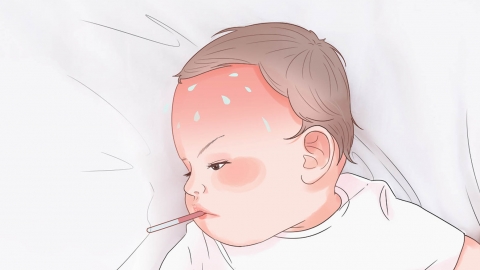Is it a problem if someone with influenza A has a fever of over 39°C for one night?
Generally speaking, "Jia Liu" refers to Influenza A. "Shao yi wan shang" means having a fever throughout the night. After contracting Influenza A, if the body temperature reaches over 39°C and one experiences a fever all night, whether or not there is a problem depends on the specific circumstances. If the patient's mental state is good without other symptoms, generally there is no serious issue. However, if there are other severe symptoms, complications may occur. If discomfort occurs, it is recommended to seek timely medical treatment. Detailed analysis is as follows:

Influenza A is a respiratory infectious disease caused by Influenza A virus infection. If the patient's temperature is around 39°C but their mental condition is good, and there are no obvious severe symptoms such as difficulty breathing, chest tightness, persistent vomiting, altered consciousness, or convulsions, the condition usually represents the body's immune response to the virus and generally does not pose serious problems. At this time, physical cooling methods such as wiping the body with lukewarm water, applying cold compresses, and drinking adequate amounts of water can be used to relieve discomfort, while closely monitoring temperature fluctuations and other symptoms. If the temperature gradually decreases and symptoms improve, there is generally no need for excessive concern.
If the patient maintains a high fever of 39°C that does not subside, especially when accompanied by other severe symptoms such as listlessness, difficulty breathing, or convulsions, this may indicate worsening of the condition as the virus might be continuously replicating and spreading to other parts of the body. In such cases, immediate medical attention and professional diagnosis and treatment are required.
During peak seasons for Influenza A, it is important to maintain good personal hygiene habits, such as washing hands frequently and wearing masks, to reduce the risk of infection.










